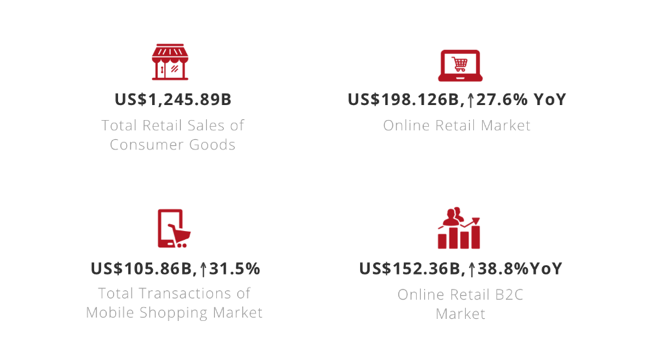The Rise of the Ecommerce Shopping Holiday in China
by Lindsay Rowntree on 30th Jun 2017 in News

In association with iClick Interactive
Over the last 7 years, Chinese ecommerce giant Alibaba led a change to overall ecommerce consumer behaviour in China by turning a little-known Chinese holiday called Singles’ Day into a multibillion-dollar online shopping fanaticism, creating a huge annual sales opportunity for consumer brands around the world. Since then, the event has evolved into a national consumption festival, smashing historical records year to year, writes Kelly Leung, VP, agency business, iClick Interactive Asia Limited, in the latest instalment from the China Expert series.
Among a series of shopping holidays, JD.com, China’s second largest ecommerce company, has also launched 618 shopping festival in recent years, which take place during the first 18 days of June each year. It is now becoming massive mid-year ecommerce event with an increase in transaction volumes by more than 50% from the previous year.
6.18 Shopping Festival Versus Singles’ Day

China Online Retail Market Overview Q1 2017

*Q1 2017, National Bureau of Statistics

Pacing Your Media Buying For Singles Day 2017
Early November is the preheat period. Potential Chinese shoppers would start to look around and build up their shopping lists. Brands should aim at boosting brand exposure and building shopper affinity for their brands. Let the shoppers know 'we’ll be there'.
When it gets closer to the day, advertisers can precisely reach their target audience groups and arouse stronger interest in the brand’s offerings among them, feeding the right message and discounted offers to the right people.
And when the clock ticks midnight on 10 November, everything should be about conversion in the following 24 hours – turning leads into actual purchases.
Overall the e-commerce market in China is growing exponentially and it is going to break all previous records in terms of both number of sales and revenue generation. Therefore, foreign brands should now focus on China as it is expected that 50% of people are involved in online shopping participate in cross border ecommerce by buying a product or service of the foreign company in 2017 and by the end of 2020 almost, 25% of the entire country’s population will buy foreign products through online retailers. This will make the e-commerce market in China stronger and richer than ever.








Follow ExchangeWire